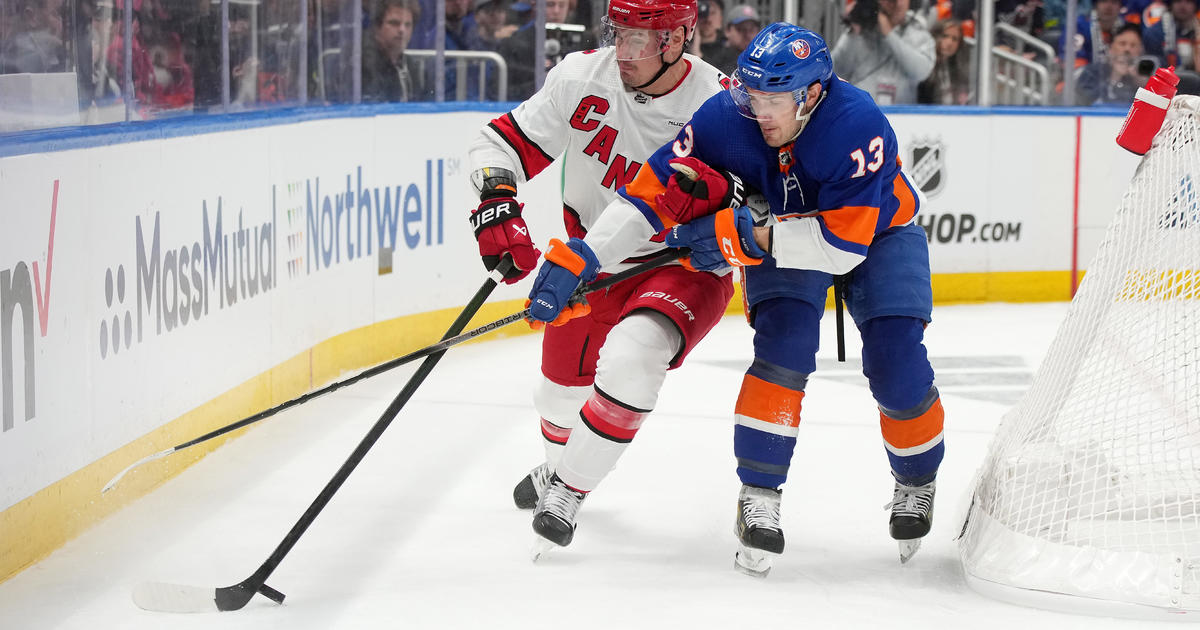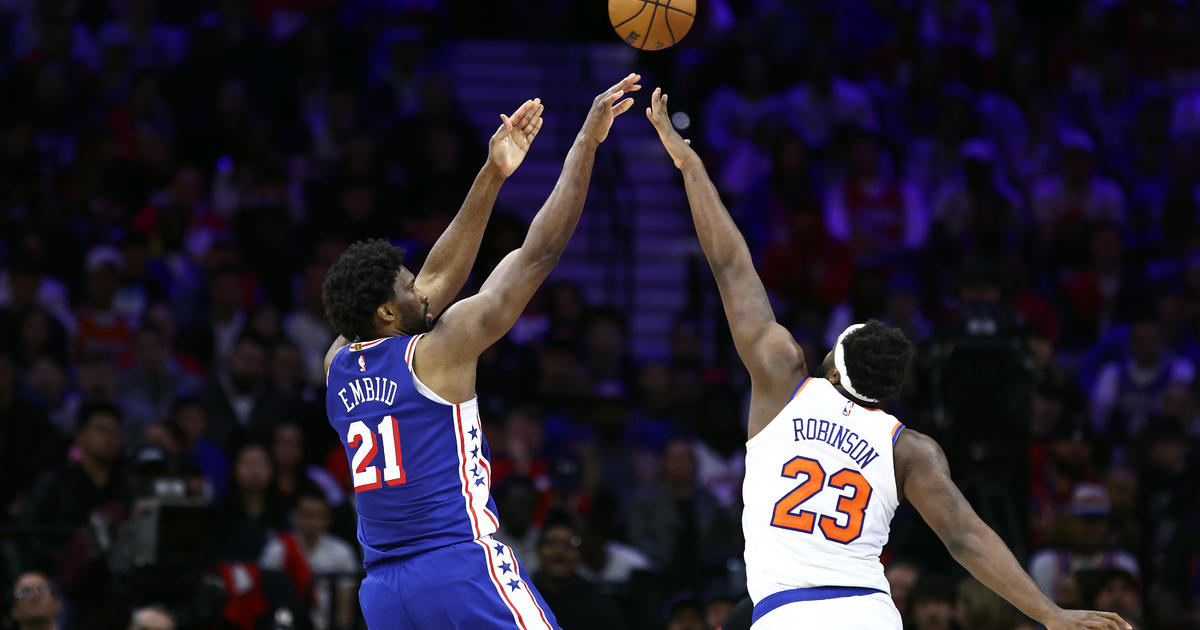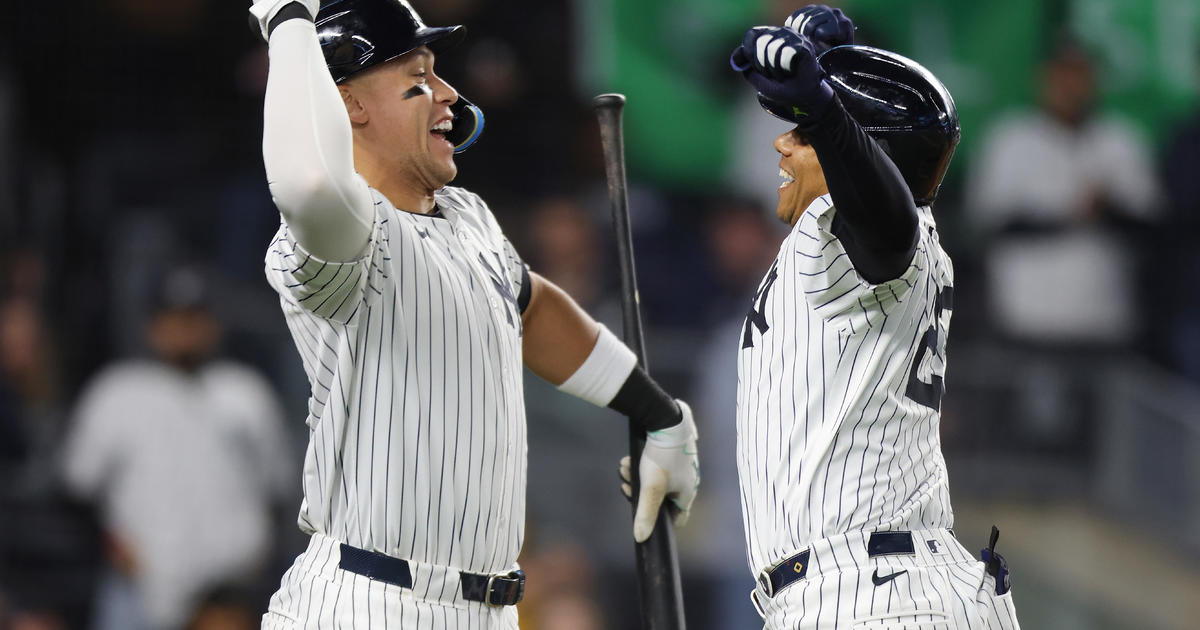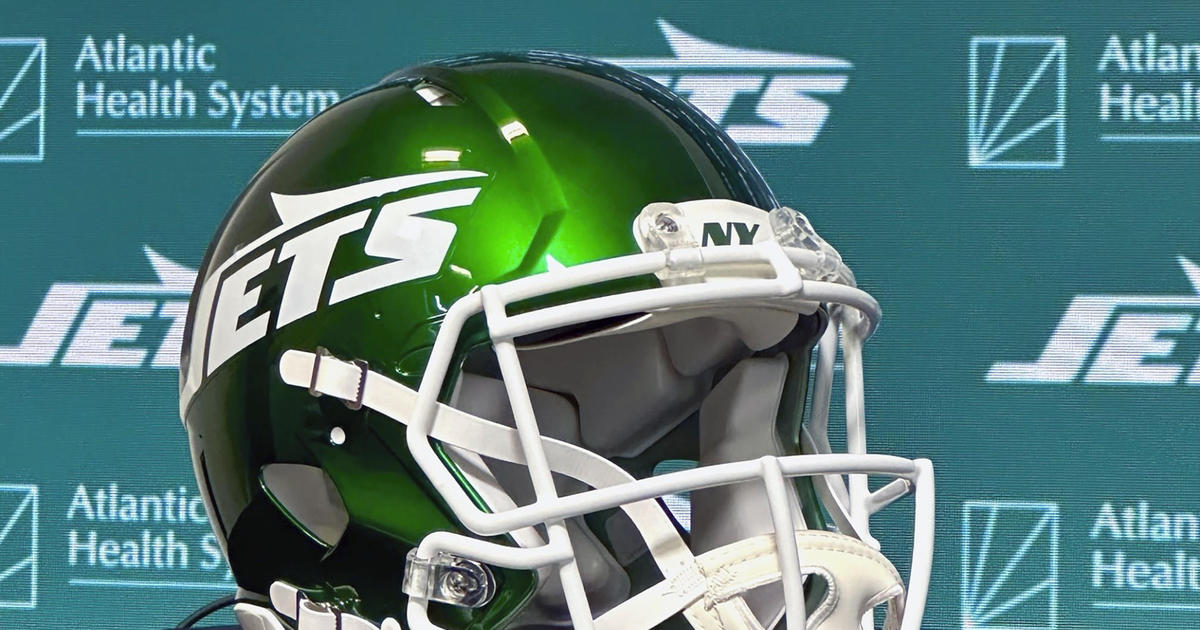'Big Shot' John Spano On WFAN: I Wanted To Restore Islanders To Glory
NEW YORK (WFAN) -- He perpetuated maybe the greatest fraud in sports history. But he claims that he did it for all the right reasons.
John Spano had a stunning rise to fame back in 1996 when he swooped in out of nowhere to try to buy the financially troubled New York Islanders. However, his fall from grace was even more spectacular, as chronicled in the ESPN 30 for 30 series film "Big Shot," which debuted on Tuesday.
Spano spoke to WFAN on Thursday, telling Joe Benigno and Evan Roberts that he mostly approved of the documentary, which was directed by actor and longtime Islanders fan Kevin Connolly, but admitted there were parts of it that he felt were somewhat inaccurate.
John Spano
Spano told Joe and Evan his grand plan to buy the Islanders without anywhere near the funds necessary to close the deal wasn't about anything more than restoring the franchise to its previous Stanley Cup championship glory. He said he got totally caught up in being treated like a god by the downtrodden fan base, but that he never lost sight of his original goal.
"It was intoxicating, it was humbling. I'm not sure why people think I did it sometimes," Spano said. "I did it because, one, I love the sport and, two, I grew up loving the Islanders and the team was in trouble. I didn't do it so I could have my 15 minutes of fame or whatever. I did it because I wanted to make that team what it used to be, with the Bossys and Nystroms and those guys. That was a dynasty and it was a great environment."
However, Spano said about a year before he hatched his scheme he was with Howard Baldwin, the former owner of the Pittsburgh Penguins, at Nassau Coliseum for a game and was stunned by what he saw.
"There were about 6,000 people there and the building was a dump," Spano said. "I said 'I can't believe this. When I was a kid this place used to be unbelievable.' And that's what I always remember when I was going for it.
"You can say what you want about everybody's fans, but the Islanders fans are a special breed. With everything they've been through they are fanatical and they love that team. So that's what drove me ... to bring that back. But was the other stuff intoxicating? Of course."
That "other stuff" Spano was referring to -- as was illustrated expertly in the film -- was the ease in which he went from being just a small-time businessman from Dallas to technically owning what was at the time the greatest North American-based franchise in the NHL.
FIT TO OWN? REALLY?
Joe and Evan posed the question that Islanders fans have wanted answered for 17 years: "How did you do it?"
"A lot of people lately, and especially in the last few days, have just said I had an enormous set of you-know-what and that had something to do with it, but perception becomes reality so to speak," Spano said. "You just keep going down the road and people just assume that everything that's been told is accurate -- and really people didn't check as much as maybe they should have. It was just as people have said -- it kind of snow-balled; it was a perfect storm and everything. You know, when you have an owner that not only wants to sell but needs to sell, things are looked at a little differently."
Spano tried to buy two other franchises before targeting the Islanders -- the Dallas Stars and Florida Panthers -- and said he could easily have gotten both done had the situations not been out of his hands. He said he was a minority partner in the Dallas deal and a bank loan would have covered his end of the purchase price, and that Florida owner Wayne Huizenga was never really serious about selling and instead just used Spano to try to leverage his state into getting him a new arena.
But regardless of how Spano depicts how easily he could have gained control of either club, he still didn't have the funds on hand when he approached the Islanders, leading to many questioning if he actually had an end game.
"No, if I did that then I would have really had problems," Spano said when asked if he had become delusional about his actual financial worth. "There were different parts of the puzzle. If they could have fallen into place it could have gotten done and this story wouldn't have happened. I'm not trying to make excuses for what happened, but if that had been the case, this thing could have got pushed over the line so to speak and done. No, I had a business. I had a decent life. I had a good life – but I knew that I had to do something else to get the rest of the funds to close the deal. I never did think for a second I had them."
As the documentary shows, using what proved to be phony documentation, Spano was able to secure an $80 million loan from Fleet Bank of Boston, but that only represented half of the money he owed Islanders owner John Pickett. Spano still had to come up with another $85 million, including a $17 million payment up front, money he had no way of getting. According to the film, Spano once sent Pickett $1,700 and at other times came up with incredible excuses for why he wasn't able to make the payment.
And for a long time both the Islanders and the NHL let him slide.
BETTMAN OR PICKETT, WHO IS MORE TO BLAME?
In the aftermath of the fraud, which earned Spano a 71-month jail sentence, both the team and the league were lambasted over their perceived ineptitude. Even Spano on the documentary joked about the NHL's "vetting process." The entire sordid ordeal was a major embarrassment for league Commissioner Gary Bettman, but when asked who he blamed more for allowing a man with no money to take control of an NHL franchise, Spano accepted responsibility for the criticism Bettman received.
"I have a different viewpoint on Gary. I had my differences with him, but I put him in a very, very difficult position and Gary Bettman throughout all that was incredibly fair with me," Spano said. "People say he's not a good commissioner and what have you, and I can't pass judgment on that because I don't know anymore. Personally, I feel bad about what I did to him because I put him in the position he shouldn't have been put in."
Spano said Pickett was overeager.
"Did [the NHL] do the due diligence they should have? Absolutely not. But, like I said, to me it was No. 2, it was more the function of a seller that not only wanted to sell but had to sell. He can say, 'well the league is supposed to do this; the league is supposed to do that,' but you also had, coming out of the Florida deal, Wayne Huizenga said I was good to go and everything was good to go and he just decided not to sell," Spano said. "They just assumed that everything that was being presented were fair and accurate, but I believe Gary, at that point in time, there were a number of teams that were in trouble so this wasn't the only fire he was trying to put out."
THE CABLE DEAL AND 'MAD MIKE' MILBURY
If Spano actually deserves credit for anything, it's the cable television deal he hammered out with Cablevision. To this day the Islanders benefit from it greatly.
"It's by far and away the best deal in hockey for any team. It's what keeps that team going. Most teams get $2 million-$3 million a year, maybe. They are getting $16 million-$18 million a year. It's phenomenal," Spano said.
Spano also cleared the air on his odd relationship with Mike Milbury, who many Islanders fans view as a man who did more harm running the front office and coaching the team than good. According to the documentary, Milbury, who was hired by the group that had assumed control of the team while Pickett sought out a sale, claimed he stepped down as head coach during Spano's brief tenure as owner. Spano told Joe and Evan something else entirely.
"He came down to my offices in Dallas. We had the conversation in my conference room. We called [Rick] Bowness and told him he would now be the coach. Mike left, flew to I think it was Hartford … The next day I get a call from a reporter saying Mike has decided to step down. In the film he said I didn't have the cojones to fire him. That's a … As I said, Mike cares about Mike. That's first and foremost," Spano said.
"The problem was the players were losing confidence in him, too. Two or three came to me and we had just gotten annihilated in Pittsburgh also and it was … besides the fact that I was doing all I had to do to scramble to get the deal closed and done, the team wasn't performing. And if I don't have people in the building to get that revenue I was really in trouble."
But Spano said he didn't fire Milbury from his role as general manager because he would have been owed a ton of money.
"He got a tremendous deal. Those four guys gave him the keys to the castle and he thought he could do no wrong," Spano said.
You May Also Be Interested In These Stories



